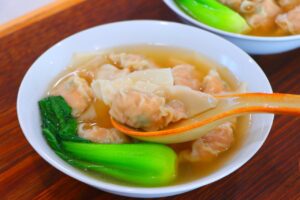
Stewed Pork Belly with Noodles
Stewed Pork Belly with Noodles is the essence of Northeastern Chinese cuisine. Known as one of the region’s four most beloved stews, this dish reflects the heart and soul of home cooking across China’s Northeast. With each family adding their own touch, the recipe I’m sharing has been passed down for generations—and holds a special place in my heart.
A Taste of Heritage
This comforting stew has been a part of my life since I was a child. I grew up eating it often, and now my 2-year-old daughter has fallen in love with it too. She doesn’t usually care for meat, but when I make this dish, she shouts, “Rou rou mian mian!”—“Meat and noodles!”—with excitement.
According to legend, this dish traces back to the Manchu people of Manchuria and their Jurchen ancestors. Known for their hunting lifestyle, they loved hearty, meaty dishes and made glass noodles from potatoes. To endure the cold, they stewed the meat and noodles together in one pot—a method that became tradition. Today, it’s a signature dish of the region and a symbol of warmth and family.
Pieces of pork belly are caramelized in a golden sugar syrup, stewed until buttery tender, and finally mixed with glass noodles that soak up every drop of the rich, flavorful broth. This is the ultimate Chinese comfort food.
Recipe
Serves: 2
Prep time: 15 minutes
Cook time: 1 hour 45 minutes
Ingredients:
5 ounces glass noodles (Chinese vermicelli)
1 pound pork belly
6 slices ginger
2 scallions, white parts only, cut into 1/2-inch pieces
1 cinnamon stick
3 pieces star anise
2 bay leaves
8 cups water
Cilantro, for garnish
For the sauce:
1 tablespoon yellow rice wine (huangjiu)
4 tablespoons light soy sauce
1 tablespoon dark soy sauce
Pinch of salt
1/2 teaspoon Sichuan peppercorn powder
1/2 teaspoon white pepper
For the sugar syrup:
4 tablespoons water
1 tablespoon yellow rock sugar
1 tablespoon cooking oil
Instructions
1. Prepare the ingredients
- Soak glass noodles in water for about 30 minutes until soft. Set aside.
- Use tweezers to remove any hairs from the pork belly skin. Cut pork belly into 1-inch cubes.
2. Blanch the pork belly
- Bring a pot of water to a boil. Add pork belly and 3 slices of ginger. Cook on high heat until the water returns to a boil.
- Remove the pork belly and set aside.
3. Make the sauce
- In a bowl, mix together the yellow rice wine, light and dark soy sauces, salt, Sichuan peppercorn powder, and white pepper. Set aside.
4. Make the sugar syrup
- In a large pan, add 4 tablespoons water and yellow rock sugar. Cook on low heat until melted into syrup.
- Add cooking oil and continue cooking until the syrup turns light brown. This gives the pork belly its signature red hue.
5. Brown the pork belly
- Add pork belly to the syrup. Cook on medium-high heat until lightly browned.
- Add remaining 3 slices of ginger, scallion whites, cinnamon stick, star anise, and bay leaves. Cook until the pork belly turns golden.
6. Stew the pork
- Pour in the prepared sauce and stir until aromatic.
- Add 4 cups of water. Bring to a boil, then reduce heat to medium-low. Stew for 1 hour and 30 minutes uncovered.
7. Add the noodles
- Add 2 more cups of water to the pot and bring back to a boil over high heat.
- Add the soaked glass noodles and cook for 5 minutes, until they absorb most of the sauce.
8. Serve
- Ladle into bowls and garnish with cilantro if desired. Enjoy hot!
Tips & notes
- Use yellow rock sugar for authentic color and a more rounded sweetness in the syrup.
- Brown the pork belly properly to develop flavor and seal in juiciness before stewing.
- Cook the stew uncovered so the sauce reduces and concentrates over time.
- Don’t skip the glass noodles—they soak up all the stew’s flavor and become incredibly satisfying.
- Make extra—this dish tastes even better the next day as the flavors continue to deepen.
Related Recipes
You may also like

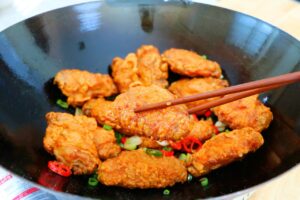
25-Min Salt and Pepper Fried Chicken Wings

9-Min Shrimp Fried Rice Recipe
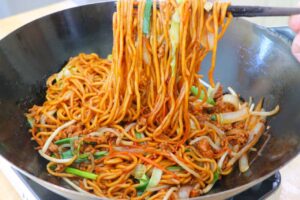
15-Min Ground Chicken Lo Mein Recipe
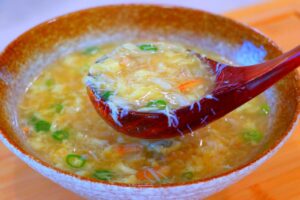
5-Min Crab Egg Drop Soup Recipe
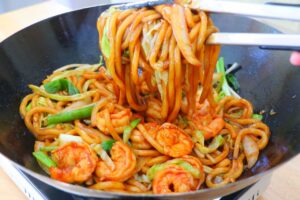
15-Min Shrimp Udon Stir-Fry Recipe

30-Min Teriyaki Pork Belly Recipe
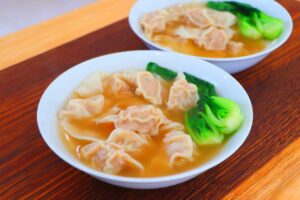
25-Min Chicken Wonton Soup Recipe
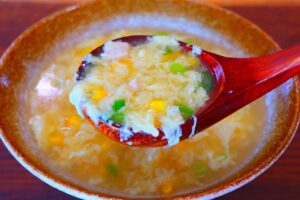
10-Min Chicken and Corn Egg Drop Soup Recipe

10-Min Thai Crab Fried Rice Recipe
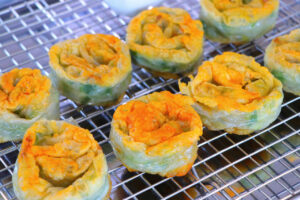
20-Min Rice Paper Scallion Pancakes
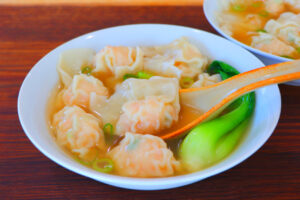
30-Min Shrimp Wonton Soup Recipe
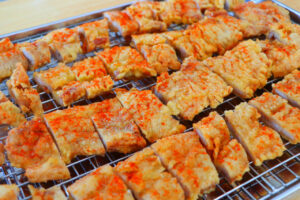
20-Min Crispy Fried Pork Belly Recipe
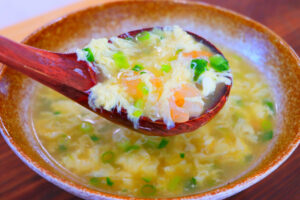
10-Min Seafood Egg Drop Soup Recipe

30-Min General Tso’s Chicken Recipe
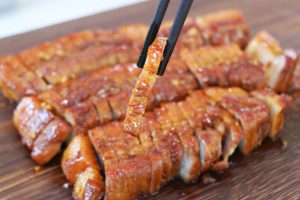
30-Min Honey Garlic Pork Belly Recipe
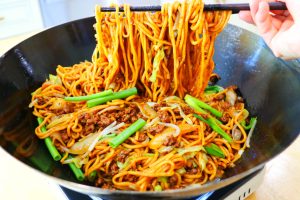
15-Min Beef Lo Mein Recipe
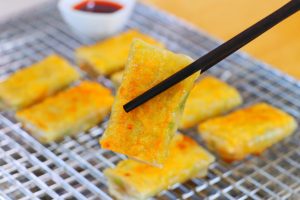
30-Min Crispy Shrimp Dumplings with Rice Paper
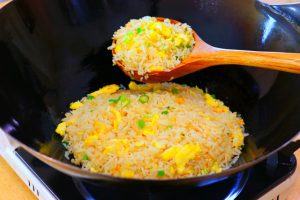
3-Min Egg Fried Rice Recipe
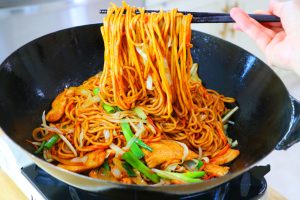
25-Min Chicken Lo Mein Recipe

15-Min Thai Shrimp Fried Rice Recipe
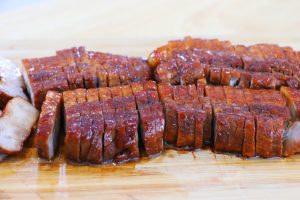
30-Min Braised Pork Belly in Soy Sauce Recipe
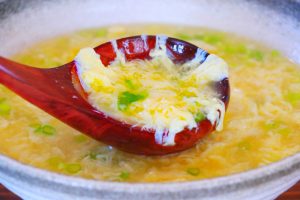
5-Min Egg Drop Soup Recipe
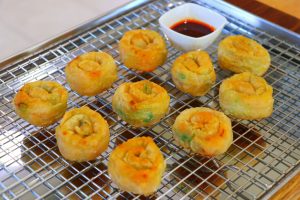
25-Min Crispy Rice Paper Shrimp Dumplings
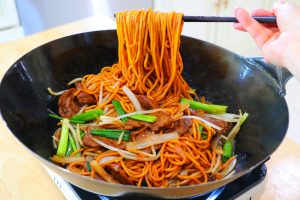
25-Min Beef and Onion Lo Mein Recipe
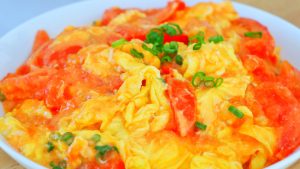
15-Min Stir-Fried Tomato & Egg Recipe
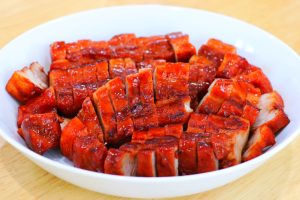
30-Min Char Siu Pork Belly Recipe—No-Oven Needed!
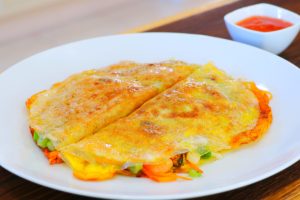
10-Min Crispy Rice Paper Seafood Omelet Recipe
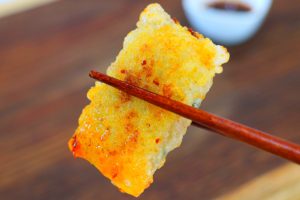
Crispy Rice Paper Chicken Dumplings


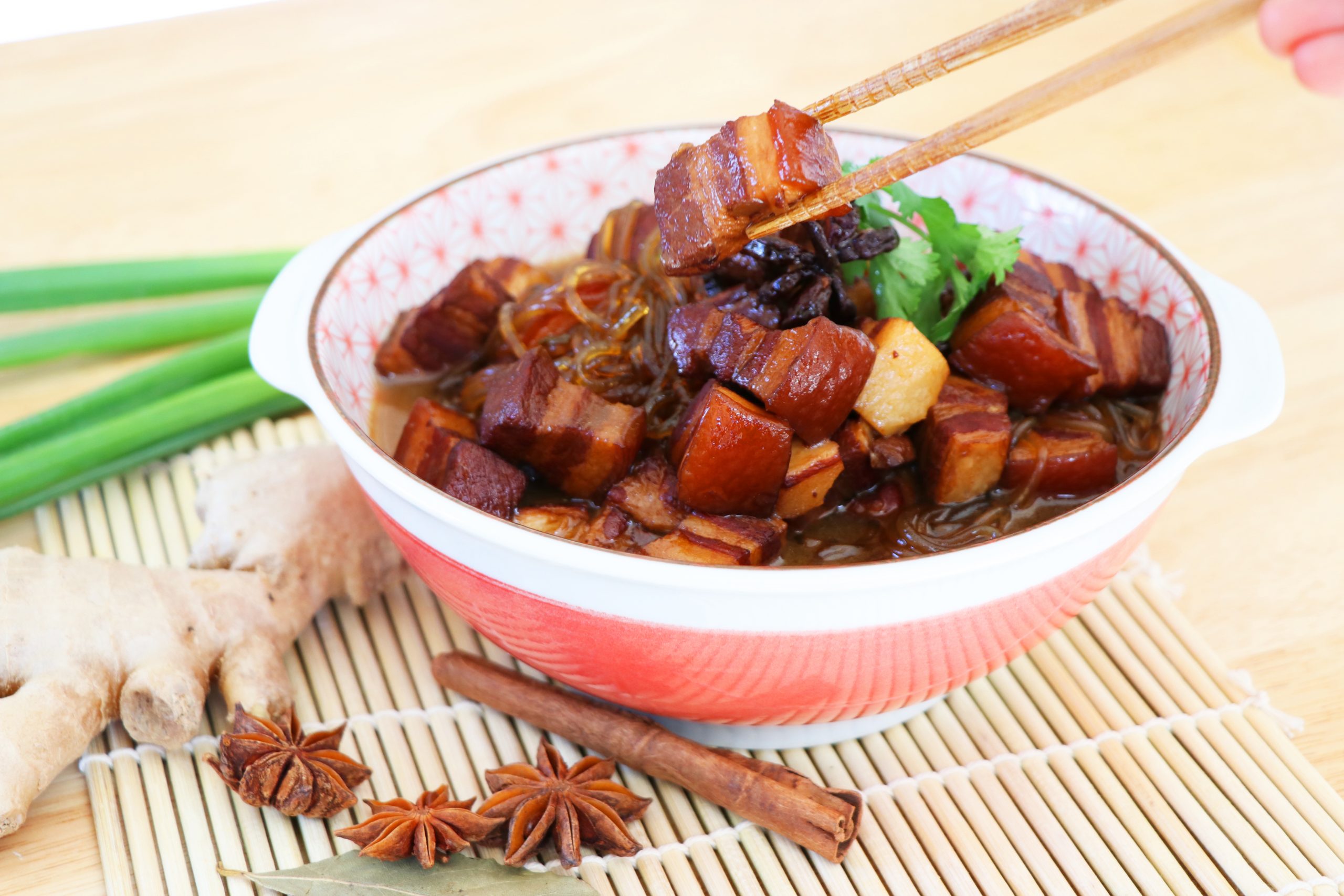
1 thought on “Stewed Pork Belly with Noodles”
Pingback: Epiphanies of Rebirth 33 – Betwixted Translations